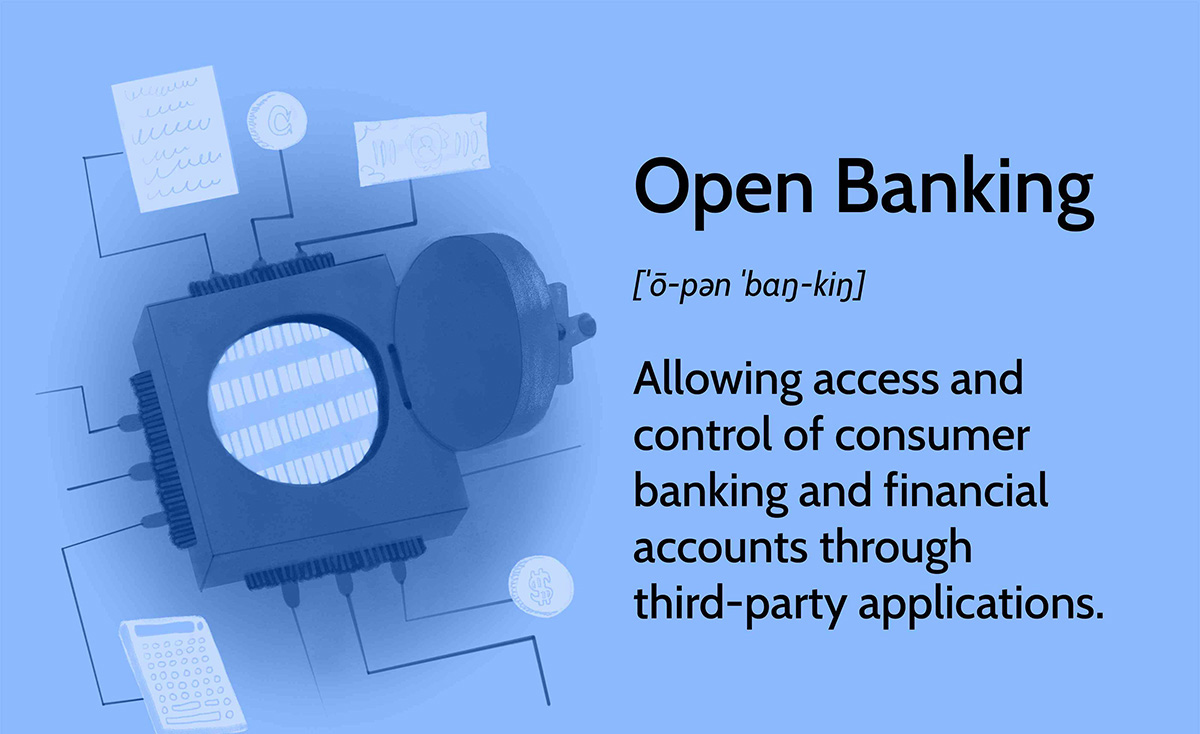

Finance
Why Investment Banking
Published: October 13, 2023
Learn about the world of investment banking and its vital role in finance. Explore the various aspects of finance and discover how it intertwines with investment banking.
(Many of the links in this article redirect to a specific reviewed product. Your purchase of these products through affiliate links helps to generate commission for LiveWell, at no extra cost. Learn more)
Table of Contents
- Introduction
- Overview of Investment Banking
- Role and Functions of Investment Banks
- Importance of Investment Banking in the Economy
- Career Opportunities in Investment Banking
- Skills Required for a Career in Investment Banking
- Challenges and Risks in Investment Banking
- Regulation and Ethics in Investment Banking
- Conclusion
Introduction
Welcome to the world of investment banking, where financial expertise meets strategic decision-making. In today’s fast-paced and increasingly interconnected global economy, investment banking plays a crucial role in facilitating capital flows, supporting businesses, and driving economic growth. Whether you’re an aspiring finance professional, an entrepreneur seeking funding, or simply someone interested in understanding the complexities of the financial world, this article will provide you with an insightful overview of the fascinating field of investment banking.
Investment banking, often referred to as the backbone of the financial system, is a specialized sector that offers a wide range of financial services to corporations, institutional clients, and governments. It involves the raising of capital, providing advisory services, executing complex financial transactions, and managing risks for clients. Investment banks act as intermediaries, connecting those in need of financial resources with investors looking for profitable opportunities.
At its core, investment banking is about strategic decision-making and analyzing market trends to drive value creation. As an investment banker, you are responsible for assessing the financial health of companies, evaluating potential risks and returns, and providing guidance on mergers, acquisitions, and capital raising activities. The work is demanding, challenging, and requires a deep understanding of financial markets, economic conditions, and industry dynamics.
Investment banking is not limited to a single function; it encompasses various roles such as corporate finance, sales and trading, research, risk management, and asset management. Each of these functions contributes to the overall success of the investment bank and its clients. This dynamic nature of the industry provides ample opportunities for professionals with diverse skill sets and interests.
Throughout this article, we will delve into the key functions of investment banking, explore its importance in the economy, discuss the career opportunities it offers, highlight the skills required for success, examine the challenges and risks involved, and touch upon the critical aspects of regulation and ethics.
Whether you are considering a career in investment banking or simply seeking to understand its impact on the economy, this article will provide you with valuable insights into the captivating world of investment banking and its pivotal role within the financial landscape.
Overview of Investment Banking
Investment banking is a sector of the financial industry that focuses on providing a range of financial services to corporations, institutional clients, and governments. It involves activities such as underwriting, advisory services, capital raising, trading, and asset management. Investment banks are an essential link between entities in need of capital and investors looking for investment opportunities.
One of the key functions of investment banks is underwriting, which involves assessing the risks and determining the value of securities offered to the public. Underwriters help companies issue stocks, bonds, or other financial instruments and ensure that they comply with regulatory requirements. In addition to underwriting, investment banks also provide advisory services, assisting companies in making strategic financial decisions, such as mergers and acquisitions, restructurings, and capital allocation.
Capital raising is another crucial aspect of investment banking. Investment banks help companies raise funds through initial public offerings (IPOs), secondary offerings, debt issuances, and private placements. They leverage their extensive network of investors to facilitate the process, ensuring that companies can access the capital they need to fuel their growth and expansion.
Trading is another significant function within investment banking. Investment banks engage in brokerage services, facilitating the buying and selling of securities on behalf of clients. They also conduct proprietary trading, whereby they trade securities for their own accounts to generate profits. In addition to traditional equities trading, investment banks are involved in trading various financial instruments, such as derivatives, commodities, and currencies.
Asset management is yet another area within investment banking. Investment banks offer asset management services, where they manage and invest clients’ funds to achieve their financial goals. These services can include managing portfolios, providing investment advice, and conducting market research.
The landscape of investment banking is constantly evolving, driven by market trends, technological advancements, and regulatory changes. In recent years, the rise of financial technology (fintech) has disrupted the industry, leading to the emergence of digital investment platforms and alternative financing options. However, traditional investment banks maintain their dominance in the market due to their extensive expertise, global reach, and established relationships with clients and investors.
Overall, investment banking plays a crucial role in driving economic growth by facilitating capital flows and supporting corporate activities. The expertise and services provided by investment banks are vital in enabling businesses to raise funds, make strategic decisions, and navigate the complexities of the financial landscape.
Role and Functions of Investment Banks
Investment banks play a pivotal role in the financial industry by providing a range of services to corporations, institutional clients, and governments. These services can be broadly categorized into four key functions: underwriting, advisory services, capital raising, and trading.
Underwriting is one of the primary functions of investment banks. When a company wants to issue stocks or bonds to raise capital, it may turn to an investment bank to act as an underwriter. Underwriters assess the risks involved and determine the fair value of the securities being offered. They then guarantee the purchase of the securities and ensure their distribution to investors through public offerings or private placements. By underwriting securities, investment banks help companies access the capital they need to support their operations and growth.
Another crucial function of investment banks is providing advisory services. Companies often seek the expertise of investment banks when making strategic financial decisions. Investment bankers analyze market conditions, assess the financial health of companies, and provide guidance on mergers and acquisitions, divestitures, restructurings, and other complex financial transactions. They assist in evaluating potential risks and returns, conducting due diligence, and negotiating favorable terms for their clients. By offering strategic advice and financial expertise, investment banks help companies make informed decisions that optimize their performance and drive value creation.
Capital raising is a vital function within investment banking. Investment banks help companies raise funds through various means, such as initial public offerings (IPOs), secondary offerings, debt issuances, and private placements. They leverage their extensive network of investors to ensure that companies can access the necessary capital to finance their growth strategies. Investment banks analyze market conditions, determine the optimal timing for raising capital, and assist in structuring the offerings to attract investors. By facilitating capital raising activities, investment banks play a crucial role in fueling economic growth and supporting companies’ expansion plans.
Trading is another significant function of investment banks. They act as intermediaries, facilitating the buying and selling of securities and other financial instruments on behalf of clients. Investment banks provide brokerage services, executing trades in equities, bonds, derivatives, commodities, and currencies. They are involved in both agency trading, where they execute client orders, and proprietary trading, where they trade on their own behalf to generate profits. Through their trading activities, investment banks contribute to market liquidity and efficiency.
Aside from these core functions, investment banks also offer a range of other services. They provide research and analysis on financial markets, industries, and specific companies, helping clients make informed investment decisions. Investment banks also engage in asset management, where they manage and invest clients’ funds to achieve their financial goals. Additionally, they provide risk management services, helping clients identify and mitigate potential risks associated with their financial activities.
Overall, investment banks play a critical role in the financial ecosystem by providing a wide range of services that support companies, institutional clients, and governments in achieving their financial objectives. Through underwriting, advisory services, capital raising, and trading, investment banks facilitate capital flows, enable strategic decision-making, and contribute to the growth and stability of the economy.
Importance of Investment Banking in the Economy
Investment banking plays a significant role in the economy by facilitating capital formation, supporting corporate activities, and driving economic growth. The importance of investment banking can be seen in several key areas:
- Capital Formation: Investment banks serve as intermediaries between entities in need of capital and investors seeking investment opportunities. Through underwriting, investment banks help companies issue securities and raise funds in the capital markets. This capital is crucial for businesses to finance their operations, invest in new projects, and drive innovation. By facilitating capital formation, investment banking supports economic expansion, job creation, and technological advancements.
- Strategic Decision-Making: Investment banks provide invaluable advisory services to companies on strategic financial decisions. They analyze market trends, evaluate potential risks and returns, and assist in transactions such as mergers, acquisitions, and divestitures. By offering expert advice and financial expertise, investment banks help companies make informed decisions that optimize their performance and drive sustainable growth. This contributes to a more efficient and competitive business environment.
- Market Liquidity and Efficiency: Through their trading activities, investment banks enhance market liquidity and efficiency. They facilitate the buying and selling of securities, ensuring that investors have access to a wide range of investment options. Investment banks provide market-making services, ensuring a continuous flow of securities and minimizing price volatility. Additionally, their research and analysis help investors make informed investment decisions, further improving market efficiency.
- Job Creation and Economic Stability: The activities of investment banks lead to job creation across various sectors. From IPOs to mergers and acquisitions, investment banking transactions create demand for legal, accounting, and consulting services. Investment banks also generate employment opportunities for finance professionals who specialize in areas such as underwriting, advisory services, and trading. The stability of the financial system is crucial for economic growth, and investment banks play a vital role in managing and mitigating financial risks, contributing to overall economic stability.
- Global Financial Interconnectedness: Investment banks operate globally and have extensive networks of clients and investors across countries. This global reach enables cross-border capital flows, supports international trade, and fosters economic integration. Investment banks facilitate foreign direct investment, providing access to capital for companies expanding into new markets. Their expertise in navigating complex regulatory and cultural environments helps businesses seize opportunities and contribute to global economic development.
Overall, investment banking is a critical component of the financial system and an essential driver of economic growth. Through capital formation, strategic decision-making support, market liquidity, job creation, and global financial interconnectedness, investment banking plays a vital role in fostering a robust and prosperous economy.
Career Opportunities in Investment Banking
Investment banking offers a wide range of rewarding career opportunities for individuals with strong analytical skills, a passion for finance, and a desire to work in a fast-paced and challenging environment. The field attracts talented professionals who are eager to make a significant impact in the financial industry. Here are some of the key career paths within investment banking:
- Investment Banking Analyst: Entry-level positions as an investment banking analyst are highly sought after by recent graduates and individuals with a few years of work experience. Analysts play a crucial role in financial analysis, modeling, and conducting due diligence on potential transactions. They collaborate with senior team members to prepare presentations, financial reports, and valuation analyses. This role provides a solid foundation for a career in investment banking and often serves as a stepping stone to more senior positions.
- Associate: After a few years as an analyst, candidates may progress to the associate level. Associates take on greater responsibilities, including client relationship management, transaction execution, and business development. They work closely with senior investment bankers in structuring deals, conducting market research, and developing financial models. Associates play a vital role in coordinating and managing the various workstreams involved in investment banking transactions.
- Vice President: The vice president level represents a mid-level management position within investment banking. Vice presidents are responsible for managing client relationships, leading deal execution, and providing strategic advice to clients. They play a critical role in business development, identifying new opportunities and developing relationships with potential clients. Vice presidents also oversee the work of analysts and associates, ensuring the timely delivery of high-quality financial analyses and reports.
- Director: Directors in investment banking are experienced professionals who have extensive industry knowledge and a strong track record in deal execution. They are responsible for managing client relationships at a senior level and leading engagements across various sectors. Directors provide strategic advice, guide clients through complex transactions, and oversee the entire deal process. They play a crucial role in business development and often act as mentors to junior team members.
- Managing Director: The managing director is typically the highest-ranking position within an investment banking division. These individuals have significant experience, expertise, and industry connections. Managing directors are responsible for shaping the strategic direction of the business, managing key client relationships, and driving revenue growth. They provide senior-level guidance on complex transactions, lead negotiation processes, and are instrumental in the overall success of the investment banking division.
In addition to these traditional career paths, investment banking offers opportunities in specialized areas such as sales and trading, research, risk management, and asset management. These roles require specific expertise in areas such as financial markets, securities trading, and investment analysis.
Success in the field of investment banking requires a combination of technical skills, strong work ethic, and the ability to work well under pressure. Excellent analytical skills, attention to detail, and financial modeling proficiency are essential. Effective communication and presentation skills are also crucial, as investment bankers frequently interact with clients, investors, and other stakeholders.
While the hours can be demanding and the work challenging, a career in investment banking offers immense opportunities for personal development, financial rewards, and professional growth. It provides individuals with a platform to work on high-profile transactions, collaborate with industry leaders, and contribute to shaping the global financial landscape.
Skills Required for a Career in Investment Banking
A successful career in investment banking requires a combination of technical expertise, strong analytical skills, and the ability to thrive in a fast-paced and high-pressure environment. Here are some of the key skills that are essential for a career in investment banking:
- Financial Acumen: A solid understanding of financial concepts, accounting principles, and financial markets is essential for investment banking professionals. This includes knowledge of valuation techniques, financial modeling, and the ability to analyze financial statements. Being able to assess the financial health of companies and accurately evaluate investment opportunities are critical skills in this field.
- Analytical Skills: Investment bankers must possess exceptional analytical abilities to gather and interpret complex financial data. This involves conducting in-depth research, analyzing market trends, and identifying key drivers of value creation. Strong problem-solving skills and attention to detail are crucial when creating financial models, conducting due diligence, and assessing the risks and rewards of potential transactions.
- Quantitative Skills: Proficiency in quantitative analysis is crucial for investment banking professionals. This includes being comfortable with mathematical concepts, statistical analysis, and financial calculations. Strong quantitative skills are essential when evaluating investment opportunities, assessing risk profiles, and conducting scenario analyses.
- Communication and Presentation Skills: Effective communication is key for investment banking professionals who need to convey complex financial information in a clear and concise manner. The ability to develop persuasive presentations, write coherent reports, and confidently articulate financial analyses is essential. Strong interpersonal skills are also important for building and maintaining client relationships.
- Collaboration and Teamwork: Investment banking involves working in dynamic teams to execute complex financial transactions. The ability to collaborate effectively, share knowledge, and work towards common goals is crucial. Investment bankers must be able to work well under pressure, meet tight deadlines, and efficiently manage multiple projects simultaneously.
- Adaptability and Resilience: The investment banking industry is known for its demanding and unpredictable nature. Flexibility, adaptability, and the ability to thrive in a fast-paced and ever-changing environment are key traits for success. Investment bankers must be resilient, able to handle challenging situations, and quickly adapt to new market conditions.
- Ethics and Integrity: Investment banking professionals deal with sensitive financial information and must adhere to the highest ethical standards. Maintaining confidentiality, demonstrating integrity, and ensuring compliance with legal and regulatory requirements are essential.
While technical skills are vital in investment banking, employers also value candidates with a strong work ethic, dedication, and a passion for the industry. Being proactive and staying updated with market trends, industry developments, and the latest financial tools and technologies is also important.
Many of these skills can be developed through academic coursework, internships, and on-the-job training. Pursuing a degree in finance, economics, or a related field, and obtaining relevant certifications such as the Chartered Financial Analyst (CFA) designation can enhance the credentials of aspiring investment banking professionals.
Ultimately, it is the combination of these skills, along with a passion for finance and a drive for excellence, that will help individuals succeed and thrive in a challenging and rewarding career in investment banking.
Challenges and Risks in Investment Banking
While a career in investment banking can be rewarding and financially lucrative, it is not without its challenges and risks. Understanding and mitigating these challenges is crucial for success in the industry. Here are some of the key challenges and risks faced by investment banking professionals:
- Intense Competition: The investment banking industry is highly competitive, with numerous firms vying for the same lucrative deals. Investment bankers must continuously demonstrate their value proposition, differentiate themselves from competitors, and build strong client relationships to secure and retain business.
- Market Volatility: Financial markets are inherently volatile, and investment banks are subject to market fluctuations. Rapid changes in market conditions can affect deal activity, asset valuations, and profitability. Investment bankers must stay abreast of market developments, anticipate potential risks, and adjust strategies accordingly.
- Deal Execution Risks: Investment banking transactions involve complex deal structures and multi-faceted processes. There is always a risk of deal execution challenges, such as delays, unforeseen complications, or failed negotiations. Investment bankers must carefully manage these risks and ensure that deal execution aligns with client objectives.
- Regulatory and Compliance: Investment banks operate within a highly regulated environment. Compliance with stringent regulations, such as securities laws, anti-money laundering rules, and ethical standards, is essential to avoid legal and reputational risks. Investment bankers must be diligent in their compliance efforts and ensure that all activities adhere to regulatory requirements.
- Client Relationship Management: Building and maintaining strong client relationships is critical in investment banking. Client demands and needs can vary significantly, requiring investment bankers to be adaptable and responsive. Nurturing client relationships requires effective communication, trust-building, and providing tailored solutions.
- Work-Life Balance: The demanding nature of the industry often leads to long working hours, tight deadlines, and high-pressure environments. Balancing work commitments with personal life can be a significant challenge for investment banking professionals. Developing effective time management skills and finding ways to prioritize self-care and well-being are crucial.
- Technology Disruption: Technological advancements, such as automation, artificial intelligence, and digital platforms, are rapidly changing the investment banking landscape. Investment bankers need to embrace technological innovations and adapt to the evolving digital landscape to remain competitive and relevant in the industry.
- Credit and Market Risks: Investment banking involves providing financing and trading financial products, which exposes firms to credit and market risks. Economic downturns, sudden market shifts, and defaulting clients can result in potential losses. Proper risk management strategies are necessary to assess, monitor, and mitigate these risks.
Successful investment bankers navigate these challenges and risks by staying informed, continuously developing their skills and knowledge, building strong professional networks, and adhering to rigorous risk management practices. They adopt a proactive approach to identify and address potential risks, while also seeking opportunities to maximize value for their clients and their own organizations.
Ultimately, the ability to effectively manage challenges and mitigate risks is key to building a successful and sustainable career in investment banking.
Regulation and Ethics in Investment Banking
Regulation and ethics play a vital role in maintaining the integrity and stability of the investment banking industry. As the industry deals with sensitive financial information and plays a significant role in the economy, adherence to ethical standards and compliance with regulatory frameworks are paramount. Here are some key aspects of regulation and ethics in investment banking:
- Regulatory Compliance: Investment banks operate within a complex regulatory environment governed by laws and regulations set by financial authorities, such as banking regulators and securities commissions. It is crucial for investment banking professionals to stay up to date with the latest regulations and ensure compliance. This includes adhering to know-your-customer (KYC) requirements, anti-money laundering (AML) regulations, and market transparency rules. Compliance helps to maintain market integrity, protect against financial crimes, and safeguard investor interests.
- Conflicts of Interest: Conflicts of interest are a potential ethical challenge in investment banking. Investment bankers must diligently manage conflicts that may arise between multiple clients, their employer, and their personal interests. They must act in the best interest of their clients, disclose any potential conflicts, and ensure transparency throughout the deal process.
- Market Manipulation and Insider Trading: Investment bankers are entrusted with confidential information about companies and financial markets. Ethical standards prohibit the use of such information for personal gain or to manipulate markets. Insider trading, the unauthorized use of non-public information for trading purposes, is strictly prohibited and subject to severe penalties. Investment banking professionals must maintain the highest level of integrity and adhere to strict compliance rules to prevent any breaches in this regard.
- Client Confidentiality: Investment bankers handle sensitive financial information about their clients, which must be treated with utmost confidentiality. Engaging in any form of unauthorized disclosure of client information is a breach of ethical standards and can result in severe legal and reputational consequences. Protecting client confidentiality fosters trust, strengthens client relationships, and maintains the confidentiality of market-sensitive information.
- Responsible Deal Structuring: Investment bankers are responsible for the structuring of deals, including underwriting and offering financial products to clients. Ethical considerations should be at the forefront of deal structuring to ensure fair pricing, appropriate risk assessments, and alignment of interests between clients and investors. Unscrupulous deal structuring practices can lead to financial imbalances, market instability, and reputational damage.
- Corporate Social Responsibility (CSR): Investment banks are increasingly expected to demonstrate corporate social responsibility. This can involve initiatives such as promoting diversity and inclusion, supporting sustainable and responsible investing practices, and contributing to the communities in which they operate. Embracing CSR practices not only aligns investment banks with societal values but also strengthens their reputation and enhances long-term sustainability.
- Continuing Education and Professional Development: Ethical conduct and regulatory compliance require investment banking professionals to maintain a high level of competence and stay informed about industry developments. Continuing education, professional certifications, and participation in industry organizations can provide valuable opportunities for ongoing learning, knowledge-sharing, and ethical best practices.
Investment banking firms often have comprehensive compliance programs and codes of conduct in place to guide employees in their ethical obligations and regulatory compliance. Ethics training, periodic audits, and internal controls further reinforce a culture of integrity and compliance.
By maintaining ethical practices and adhering to regulatory requirements, investment banks can protect their reputation, foster trust among clients and investors, and contribute to the overall stability and integrity of the financial system.
Conclusion
Investment banking is a dynamic and essential sector within the financial industry that plays a crucial role in driving economic growth, facilitating capital flows, and supporting corporate activities. From underwriting securities to providing strategic advice, investment banks are instrumental in helping companies raise capital, make informed financial decisions, and navigate the complexities of the financial landscape. The career opportunities within investment banking are diverse and offer individuals the chance to work on high-profile transactions, collaborate with industry leaders, and contribute to shaping the global financial landscape.
However, the field of investment banking is not without its challenges and risks. The industry faces intense competition, market volatility, and complex regulatory requirements. Investment banking professionals must possess a wide range of skills, including financial acumen, analytical prowess, strong communication abilities, and the ability to adapt to changing market conditions. Upholding high ethical standards and complying with regulatory frameworks are equally crucial in maintaining the integrity and stability of the industry.
Despite the challenges, a career in investment banking can be rewarding, financially lucrative, and intellectually stimulating. It offers individuals the opportunity to work on high-value deals, leverage their financial expertise, and contribute to the growth and success of businesses. By embracing ethical practices, complying with regulations, and staying abreast of market trends, investment banking professionals can successfully navigate the industry and make a meaningful impact on the global financial landscape.
Whether you are considering a career in investment banking or simply seeking to understand its importance in the economy, it is clear that investment banking is a vital component of the financial system and a driving force behind economic growth and prosperity.














